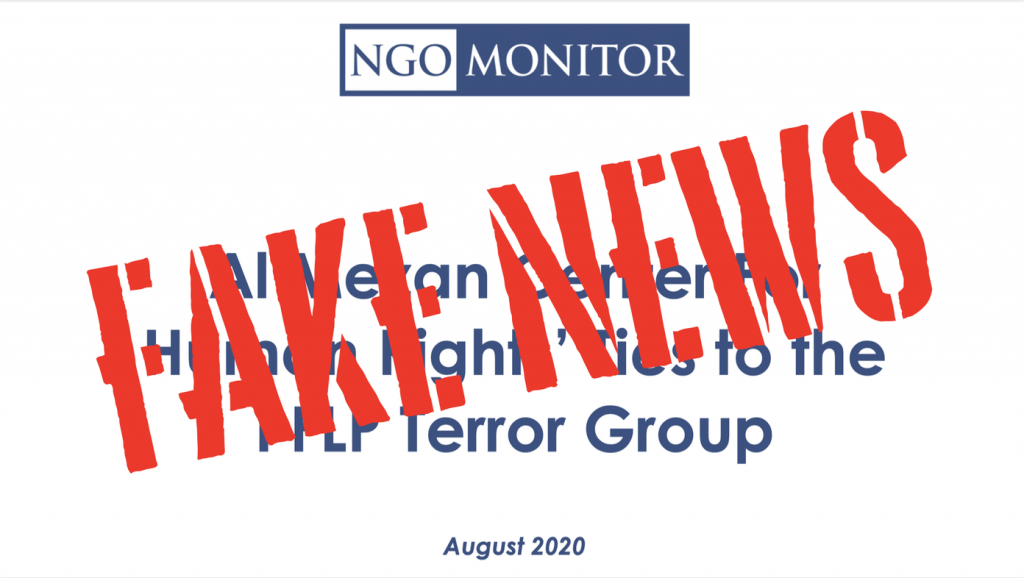Smear campaigns have become a regular tool to attack the legitimate mission of human rights organisations. In a recent publication from NGO Monitor, Al Mezan Centre for Human Rights becomes the latest target in this effort.
In an attempt to steer the attention away from the human rights situation in Palestine, the self-proclaimed “research institute promoting democratic values and good governance” has become a bothersome thorn for human rights organisations that unpack and challenge the human rights violations that drench Palestinians’ lives.
Published in August 2020, the publication issues baseless allegations that Al Mezan lacks transparency in their financial reporting and has links to terrorist organisations. Al Mezan and international donors, such as the Dutch Ministry of Foreign Affairs, debunked these false accusations. The report was published ahead of a ruling of the Pre-Trial Chamber of the International Criminal Court regarding the Court’s jurisdiction over Palestine.
NGO Monitor’s claims are unfounded, without any solid argument that entails judicial evidence. On the financial front for instance, Al Mezan’s accounting reports can be found on the Transparency Palestine website. As for the tendentious associations made to link Al Mezan with terrorism, the EU and its Member states (for instance Denmark and Ireland) have stated that allegations of EU-funded NGOs supporting incitement, terror or antisemitism were “unfounded and unacceptable; vague and unsubstantiated; and feeding disinformation campaigns.”
The noise created by these reports can be heard deliberately in various parts of society: it labels human rights organisations in Israel as outsiders and traitors; for their part, Palestinian groups are outrightly equated to terrorist organisations. In Europe, it instils public and media concerns about financial mismanagement, giving far-right groups the perfect excuse to further demonise human rights organisations at home and abroad. In this case, the Dutch nationalist Party of Freedom echoed the accusations against Al Mezan.
Despite public recognition by donors that NGO Monitor’s credibility is non-existent, the polite consideration given to these allegations in the first-place (and each time a similarly unfounded publication is released), contributes to the burden human rights organisations experience to defend themselves and helps lay a patina of doubt over their integrity. NGOs need to dedicate invaluable resources, human capacity and time to counter this toxic narrative – effectively shrinking their space to operate and to fulfil their mandate: protecting and promoting human rights.

